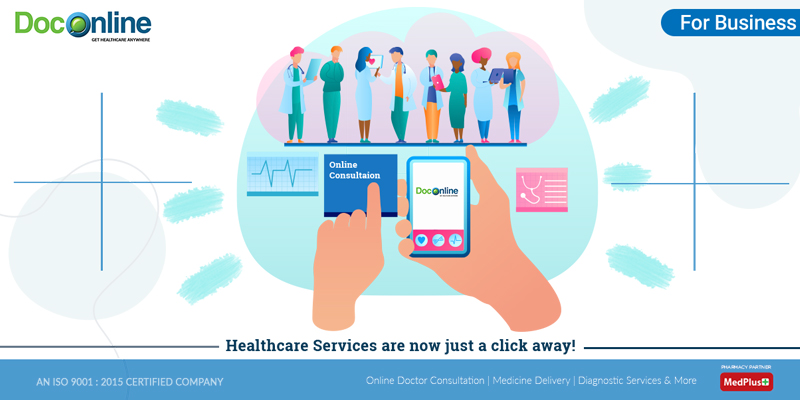Browsing the Future of Medication With Subscription-Based Medical Care Provider
As the health care industry advances, subscription-based services arise as an essential design assuring to reshape person treatment delivery. With the prospective to supply streamlined, cost-effective remedies through foreseeable rates and individualized interest, these services stand at the forefront of modern medical technology. As we consider their rise, one should contemplate the effects of integrating such systems right into existing healthcare structures. What difficulties do they pose in regards to information safety and equitable gain access to, and how might they redefine the patient-provider connection? The solution to these concerns could essentially alter our technique to healthcare.
Rise of Membership Medical Care
As healthcare systems worldwide face raising stress from climbing costs and demand for solutions, the arrival of subscription-based healthcare designs has arised as a transformative fad. This innovative method is interrupting typical healthcare delivery by providing a predictable, flat-rate repayment framework for clinical solutions. Rooted in the concepts of attendant medication, subscription-based medical care enables providers to concentrate on individualized individual treatment while all at once taking care of functional efficiencies.
The rise of this model can be credited to several factors. Technological developments have made it possible for more seamless integration of care with telehealth and electronic health records, helping with the scalability of subscription services. Furthermore, the increasing consumer demand for transparency and predictability in healthcare expenditures has driven the change in the direction of this design. Subscription-based solutions commonly use direct access to medical care specialists, which can minimize the administrative problems connected with insurance coverage claims and repayments (subscription based healthcare).
This model is getting traction amongst varied healthcare providers, from main treatment physicians to specialized centers, by aligning monetary incentives with constant and preventative care. By moving the emphasis from volume to value-based treatment, subscription health care has the possible to improve the landscape, cultivating a much more sustainable and patient-centered technique to health administration.
Advantages for Patients

Furthermore, subscription-based services typically highlight precautionary treatment, motivating normal exams and wellness testings. This positive technique can cause very early detection of health and wellness problems, potentially improving end results and decreasing long-term health care expenses for clients. Such designs generally offer clear prices, enabling patients to much better comprehend their health care expenses and stay clear of unanticipated medical bills.
The customized nature of subscription-based medical care also improves individual experience. Patients can get customized medical care plans that suit their certain requirements, cultivating a more patient-centric method.
Modern technology's Role in Change

Fabricated knowledge (AI) plays a crucial function in predictive analytics, aiding in early medical diagnosis and customized therapy plans. AI algorithms analyze vast datasets to determine patterns that may be ignored by human monitoring, therefore improving clinical decision-making. Electronic health and wellness documents (EHRs) simplify individual info management, making sure continuity and comprehensibility of care across different services and service providers.
Blockchain modern technology enhances information safety and security and privacy, essential for keeping person depend on in digital systems. It allows safe and transparent purchases of medical data, making certain that sensitive info stays secured. With the integration of artificial intelligence and AI, blockchain can automate complicated health care processes, reducing administrative concerns.
Considerations and difficulties
While innovation moves the capabilities of subscription-based medical care solutions, it likewise presents a collection of challenges and considerations that need to be dealt with to make certain successful execution. One significant challenge is the fair accessibility of these services. As subscription models typically depend on digital platforms, there is a threat of exacerbating the electronic divide, leaving people without net gain access to or electronic literacy. Making certain these services do not disproportionately benefit only tech-savvy and wealthy populations is essential.
Information personal privacy and protection stand for another essential consideration. Subscription-based solutions often entail the collection and storage of large quantities of individual health and wellness information. Service providers must follow rigid data defense policies to preserve client count on and prevent unauthorized access, which might bring about substantial moral and lawful repercussions.
As health care needs progress, maintaining an economical balance between registration charges and service high quality is crucial to stop patient frustration and attrition. Attending to these obstacles is important as subscription-based health care services continue to expand and progress.
Future Effects for Medicine
Subscription-based medical care solutions are poised to considerably affect the future landscape of medicine by improving exactly how treatment is accessed and delivered. These designs provide the possible to equalize health care access, giving patients with more timely and customized treatments. By leveraging innovation, such as telemedicine and information analytics, membership services can promote continuous tracking and tailored wellness monitoring, hence boosting results and reducing the burden on standard medical care Learn More Here systems.
As these services gain grip, they could stimulate a shift in the direction of preventative treatment, emphasizing the value of very early discovery and monitoring of persistent problems. This positive technique might eventually reduce health care costs by alleviating the requirement for expensive therapies emerging from late-stage disease administration. Moreover, registration models supply a scalable solution to deal with disparities in medical care accessibility, particularly in rural or underserved populaces.
Nonetheless, the transition in the direction of subscription-based designs requires attending to moral and governing considerations, including data personal privacy and equitable gain access to. As the market progresses, collective efforts between policymakers, innovation designers, and doctor will certainly be essential to establishing robust frameworks that safeguard client rate of interests while fostering innovation. Eventually, these services promise to contribute significantly to a much more effective, patient-centered medical care environment.

Final Thought
Subscription-based health care solutions represent a considerable evolution in the medical area, providing foreseeable expenses and individualized treatment that enhance access and focus on preventative steps. Technical developments, such as telemedicine and AI-driven analytics, assist in tailored person experiences, enhancing overall health results. However, obstacles such as information privacy and equitable access have to be addressed to make sure the extensive advantages of these services. As the health care landscape evolves, subscription models are poised to play an important function in forming the future of medication.
As the healthcare check it out market progresses, subscription-based solutions emerge as a pivotal design guaranteeing to improve individual treatment distribution.As medical care systems around the why not look here world face raising stress from increasing prices and demand for solutions, the introduction of subscription-based medical care versions has emerged as a transformative pattern (subscription based healthcare).With the rise of subscription-based healthcare designs improving conventional medical care distribution, people are starting to experience considerable benefits from this cutting-edge method. As medical care needs evolve, maintaining an economical equilibrium in between subscription costs and solution quality is vital to protect against individual dissatisfaction and attrition.Subscription-based medical care solutions are poised to dramatically influence the future landscape of medicine by reshaping how treatment is accessed and delivered